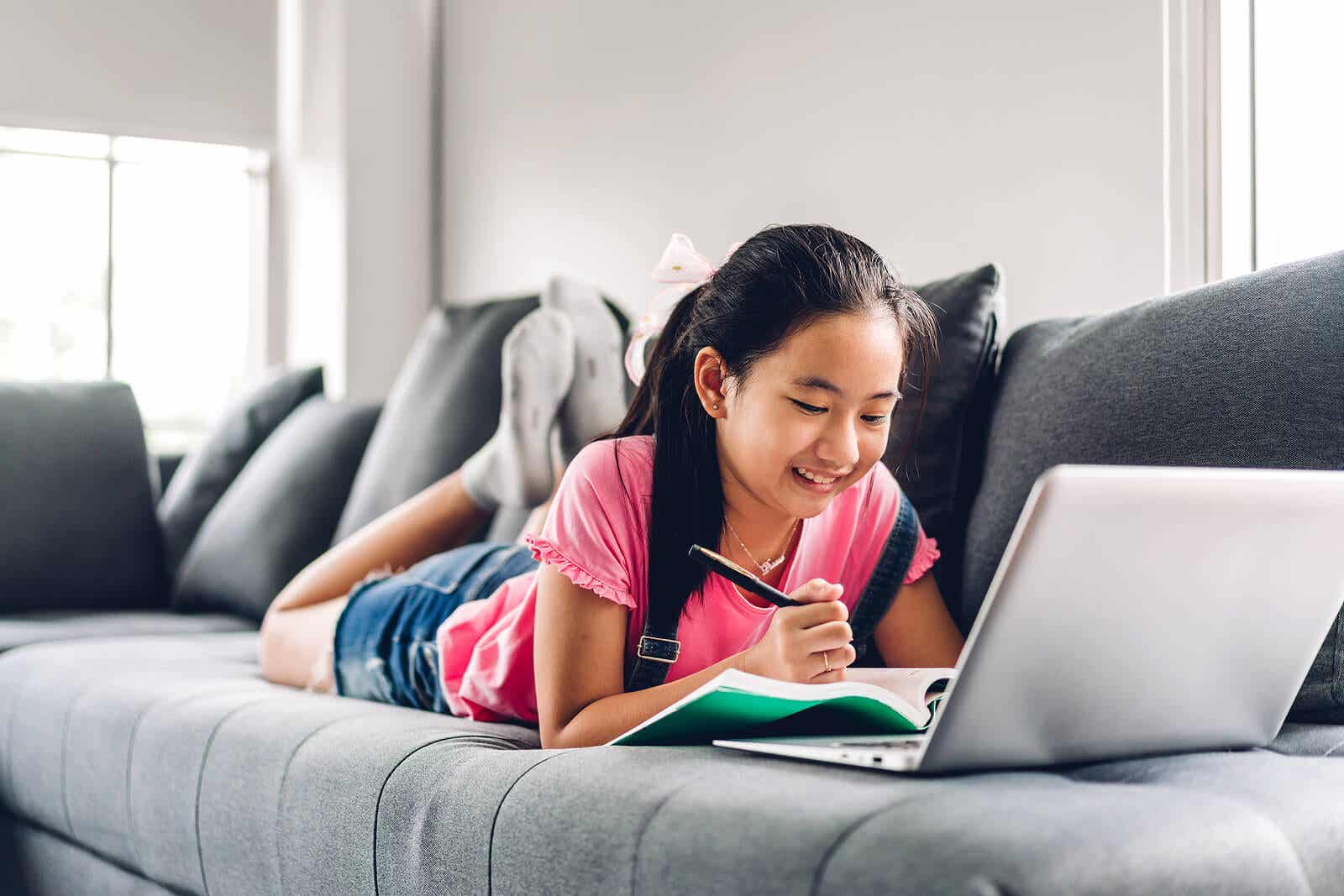Self-Regulation in Learning According to Richard Fenker


Written and verified by the psychologist Ana Couñago
Self-regulation in learning is the capacity that each person has to manage, adjust, and direct one’s actions, thoughts, emotions, and motivations in order to achieve certain goals related to the academic field.
However, achieving self-regulation of one’s own learning is a complex process that involves putting into practice different strategies designed to guide your behavior when studying. One of these strategies is the one proposed by the American psychologist Richard Fenker, which we’ll discuss in the following lines.
“Learning is most effective when it’s an active rather than a passive process.”
-Kurt Lewin-
Self-regulation in learning according to Richard Fenker
Psychologist and professor Richard Fenker, a renowned specialist in learning strategy courses, in his book Stop Studying, Start Learning, describes different innovative methods to improve performance when studying.

Among these methods is a program for self-regulated learning. This program consists of three simple steps:
- Set a clear objective.
- Control the learning processes necessary to achieve the previously established objective.
- Decide what to do in case there’s a distraction.
So, below, we’ll explain what each of these steps consists of in greater detail.
1. Set a clear objective
At the beginning of the study session, it’s best to establish a clear, concrete, and short-term objective, such as doing a series of math problems, reading a book topic, learning the vocabulary of a language, writing a summary, creating an outline, among others.
Once this objective’s been achieved, if necessary, you can specify another new objective, but always specifying the task to be performed.
“First, have a definite, clear, practical ideal; a goal, an objective. Second, have the necessary means to achieve your ends.”
-Aristotle-
2. Control the learning processes necessary to achieve the set goal
In this sense, you must try to recognize and identify the signals transmitted by your own body, and pay attention to your state of mind, external distractions, motivation, etc. And, in particular, you must be careful to avoid reading automatically without understanding the text and not realizing it until some time has gone by.
Richard Fenker calls this evasion of study due to some circumstance the “Gotcha point”, so that, when you reach this point, the psychologist recommends saying aloud the following sonorous and striking phrase:
“Gotcha! You’re getting off track again. Come back again to the path of glory”.
This gets you back on task and closer to meeting the goal you previously set.

3. Deciding what to do in case of distraction during self-regulated learning
Often, to regain concentration, uttering the phrase we’ve just quoted isn’t enough. Therefore, you have to use other strategies that allow you to be more active in your study, such as the following:
- Changing study techniques to increase activity in the acquisition of content. To do this, you can:
- Underline or highlight.
- Summarize.
- Elaborate schemes or mental maps.
- Write in the margins.
- Make diagrams of relationships between the different parts of the text.
- Making comparative tables.
- Repeat aloud or under your breath what you need to learn.
- Draw pictures about the topic.
- Form associations with images.
- Construct mnemonic devices.
- Pretend to explain the lesson to someone else.
- Selecting another task that’s more appropriate for the moment. In this sense, you can change a subject to one that’s better adapted to the mental state that you’re in at the moment.
- Take a short break of no more than 10 minutes and then continue with the proposed task. Sometimes you need to take a break, relax, and disconnect from the study to continue with more energy.
As you’ve seen, Richard Finker’s learning self-regulation technique proposed can be very useful for your children while they’re studying. So why not teach it to them to make them much more productive during their study time?
Self-regulation in learning is the capacity that each person has to manage, adjust, and direct one’s actions, thoughts, emotions, and motivations in order to achieve certain goals related to the academic field.
However, achieving self-regulation of one’s own learning is a complex process that involves putting into practice different strategies designed to guide your behavior when studying. One of these strategies is the one proposed by the American psychologist Richard Fenker, which we’ll discuss in the following lines.
“Learning is most effective when it’s an active rather than a passive process.”
-Kurt Lewin-
Self-regulation in learning according to Richard Fenker
Psychologist and professor Richard Fenker, a renowned specialist in learning strategy courses, in his book Stop Studying, Start Learning, describes different innovative methods to improve performance when studying.

Among these methods is a program for self-regulated learning. This program consists of three simple steps:
- Set a clear objective.
- Control the learning processes necessary to achieve the previously established objective.
- Decide what to do in case there’s a distraction.
So, below, we’ll explain what each of these steps consists of in greater detail.
1. Set a clear objective
At the beginning of the study session, it’s best to establish a clear, concrete, and short-term objective, such as doing a series of math problems, reading a book topic, learning the vocabulary of a language, writing a summary, creating an outline, among others.
Once this objective’s been achieved, if necessary, you can specify another new objective, but always specifying the task to be performed.
“First, have a definite, clear, practical ideal; a goal, an objective. Second, have the necessary means to achieve your ends.”
-Aristotle-
2. Control the learning processes necessary to achieve the set goal
In this sense, you must try to recognize and identify the signals transmitted by your own body, and pay attention to your state of mind, external distractions, motivation, etc. And, in particular, you must be careful to avoid reading automatically without understanding the text and not realizing it until some time has gone by.
Richard Fenker calls this evasion of study due to some circumstance the “Gotcha point”, so that, when you reach this point, the psychologist recommends saying aloud the following sonorous and striking phrase:
“Gotcha! You’re getting off track again. Come back again to the path of glory”.
This gets you back on task and closer to meeting the goal you previously set.

3. Deciding what to do in case of distraction during self-regulated learning
Often, to regain concentration, uttering the phrase we’ve just quoted isn’t enough. Therefore, you have to use other strategies that allow you to be more active in your study, such as the following:
- Changing study techniques to increase activity in the acquisition of content. To do this, you can:
- Underline or highlight.
- Summarize.
- Elaborate schemes or mental maps.
- Write in the margins.
- Make diagrams of relationships between the different parts of the text.
- Making comparative tables.
- Repeat aloud or under your breath what you need to learn.
- Draw pictures about the topic.
- Form associations with images.
- Construct mnemonic devices.
- Pretend to explain the lesson to someone else.
- Selecting another task that’s more appropriate for the moment. In this sense, you can change a subject to one that’s better adapted to the mental state that you’re in at the moment.
- Take a short break of no more than 10 minutes and then continue with the proposed task. Sometimes you need to take a break, relax, and disconnect from the study to continue with more energy.
As you’ve seen, Richard Finker’s learning self-regulation technique proposed can be very useful for your children while they’re studying. So why not teach it to them to make them much more productive during their study time?
All cited sources were thoroughly reviewed by our team to ensure their quality, reliability, currency, and validity. The bibliography of this article was considered reliable and of academic or scientific accuracy.
- Fenker, R. M., Mullins, R. y Pate, J. (1984). Cómo estudiar y aprender más y mejor en menos tiempo. Madrid: EDAF.
This text is provided for informational purposes only and does not replace consultation with a professional. If in doubt, consult your specialist.








